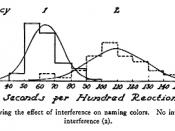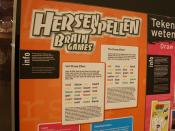The effect of meaning of the word and flanker on amount of interference in colored naming task
Abstract
The purpose of this study was to examine the effect of flanker and meaningfulness of the word on Stroop effect by conduction color naming task. Hundred and ninety four participants were selected randomly by 97 PSY2042 psychology students and their participations were voluntary. The experiment consisted of 7 color naming lists; it started with a practice list, followed by another 6 experiment list: colored congruent colored name; colored incongruent color name; colored non-word; flanking congruent color name; flanking incongruent color name and flanking non-word. Participants were asked to name the ink color on 6 experimental lists as quickly as possible, and their response time for each list were timed and recorded individually. It was hypothesized that the incongruent color condition will have a statistically significantly longer response time than the other conditions.
Further more, it was predicted that stroop interference can be reduced when the incongruent word flanks the colored ink. The final hypothesis is that the meaningfulness of the words can influence the effects significantly.
When you first learn to drive a car, you needed to carefully think through each step of the process. After you drive for few years, you probably do not even seem to think about the steps, but simply initiate a series of movements that seem to proceed without any further influence. When a behavior or skill seems to no longer require direct interaction, cognitive psychologists say it is automatized (Besner, Stolz & Boutilier, 1997). Many behaviors can become automatized: typing, reading, writing, bicycling, piano playing, etc. In order to explore the properties of automatized behaviors, cognitive psychologist often put observers in a situation where an automatized response is in conflict with the desired behavior (Francis,


